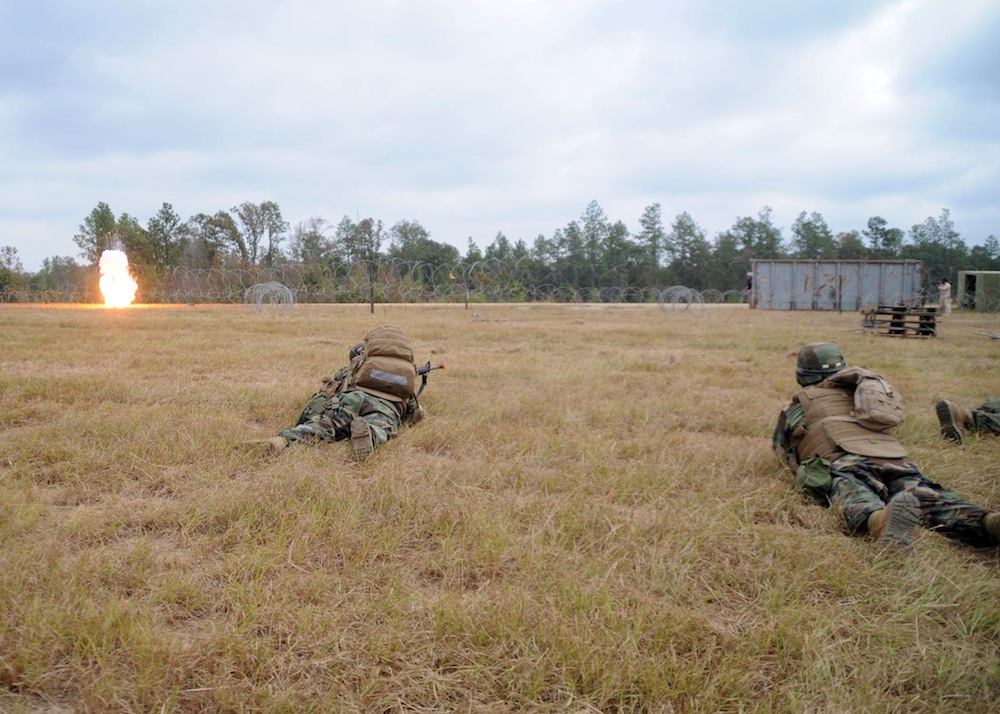War's Cost: To Gain Cooperation, People Punish Others

War. What is it good for?
Getting people to work together, a new study finds.
People are more willing to reward collaborators and punish lone wolves in an effort to force cooperation in times of conflict, according to the research, which was conducted during the 34-day Israel-Hezbollah war in 2006. It's the first time that scientists have tested the influence of real-world conflict on people's cooperative behaviors, said study researcher Daniel Fessler, an anthropologist at the University of California, Los Angeles.
And while researchers can't be sure what the study participants were thinking during the experiment, the results make sense from an evolutionary perspective, Fessler said.
"The hypothesis is that whether through biological evolution, cultural evolution or a combination of these, human psychology is such that when the group is under attack, people increase the importance they place on cooperation within the group," Fessler told LiveScience. "They are more willing to sacrifice in order to force others to be cooperative." [Fight, Fight, Fight: The History of Human Aggression]
From terrorism to war
The study, published today (June 7) in the journal Proceedings of the Royal Society B, was originally meant to tease out the effects of terrorist attacks on cooperation. Study researcher Ayelet Gneezy, a marketing professor at the University of California, San Diego, had completed a few experiments in Tel Aviv about nine months before the Israel-Hezbollah war. Gneezy planned to wait for a terrorist attack to occur in Israel and then run the same experiments again to compare the results. Instead, a war broke out.
Get the world’s most fascinating discoveries delivered straight to your inbox.
So Gneezy changed her focus to a new question: Would a not-so-distant war influence her participants' cooperative behavior? She went back to the Tel Aviv retirement community where she first ran the experiments and recruited new volunteers. As the participants were senior citizens, they were not in danger of being called up for military service.
The participants were paired off to play one of two games, the Trust Game or the Ultimatum Game. In the Ultimatum Game, one player gets a pot of money and is told to divide it between himself and a second player. If Player 2 deems the division fair and accepts, the players get to divide and keep the money as Player 1 decreed. If Player 2 thinks Player 1 is being unfair, she can reject the offer, in which case both players get nothing. Player 2 has to take a hit for making this decision, as she loses out on whatever money Player 1 wanted to give, but at a certain point, Fessler said, people would rather punish the ungenerous partner than walk away with a paltry sum of cash.
In the Trust Game, Player 1 gets some cash and can decide how much to give to Player 2. Both players know that the cash Player 1 chooses to transfer will be tripled. Next, Player 2 gets to make a decision about how much of the tripled cash to return to Player 1. If they're a cooperative pair, Player 1 will transfer all the money and Player 2 will transfer half back, ensuring they both end up with 150 percent of what they started with. Player 2's willingness to transfer money back to Player 1 is a measure of how much Player 2 is willing to give up to reward Player 1's cooperative behavior.
War and cooperation
The researchers found that nine months before the war and one year after the war, people showed similar levels of cooperativeness when playing these games. But as the war raged, the participants became much more willing to give up some of their own cash to punish an uncooperative partner or reward a cooperative one.
"The big finding is that war has a substantial effect on the price that people are willing to pay to enhance cooperation," Fessler said.
In the Ultimatum Game, for example, about 12 percent of Player 2s rejected an offer of a 30-70 split with Player 1 as unfair during peacetime. During wartime, that number rose to 40 percent. The finding illustrates a greater willingness to give up cash to punish an uncooperative player during war, Fessler said.
In a peacetime Trust Game, Player 2s sent back about the same proportion of money to Player 1s regardless of how stingy Player 1 was with the transfer, Gneezy and Fessler found. But during wartime, people responded strongly to Player 1's generosity (or lack thereof). An initial transfer of a few dollars resulted in only about a 25-percent return rate, while a transfer of the full $50 inspired Player 2s to send 150 percent of the original (now tripled) sum back.
Cooperation or rule-following?
Though it's not surprising that people might come together during war time, the key finding is that people are willing to give up their own resources to make that happen, Fessler said. Without rewards and punishments, he added, cooperation fades over time.
The Israel-Hezbollah war was a short one, lasting barely a month, so researchers aren't sure how people would react in a longer conflict. No one has shown any effects of cooperation from the Iraq and Afghanistan wars on U.S. citizens, Fessler said, which may be because the wars are distant and civilians don't feel unsafe.
The question now, Fessler said, is whether wartime has a specific effect on cooperation or whether people just become more moralistic and rules-driven in general.
"It could be either," Fessler said. "The next step is to see whether these effects are exclusive to punishing and rewarding in the context of cooperation or whether they are about enforcing conformity to the rules more generally."
You can follow LiveScience senior writer Stephanie Pappas on Twitter @sipappas. Follow LiveScience for the latest in science news and discoveries on Twitter @livescience and on Facebook.

Stephanie Pappas is a contributing writer for Live Science, covering topics ranging from geoscience to archaeology to the human brain and behavior. She was previously a senior writer for Live Science but is now a freelancer based in Denver, Colorado, and regularly contributes to Scientific American and The Monitor, the monthly magazine of the American Psychological Association. Stephanie received a bachelor's degree in psychology from the University of South Carolina and a graduate certificate in science communication from the University of California, Santa Cruz.


